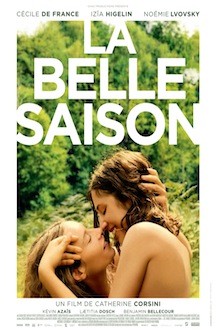Directed by Robert Budreau
Country: Canada / USA / UK
I was always a big admirer of Chet Baker’s music, but that’s not the reason why I recommend “Born to Be Blue”, a part real, part fictional drama written, directed, and produced by the Canadian Robert Budreau.
Ethan Hawke, despite the physical dissimilarities, was chosen to play the trumpeter, and he does it intimately enough to make us forget such an important detail.
The film takes us to the early 50’s where we can listen to the beautiful standard ‘Let’s Get Lost’, immortalized by Mr. Baker, one of the greatest representatives of the West Coast jazz scene. The black and white images tell us that we’re before a memorable moment recovered from the past.
The present, portrayed in color, shows a quite different reality. Now a heroin addict, Chet Baker lies on the floor of a prison cell and gets the visit of a filmmaker who wants him to play himself in a movie about his earlier years as a heroin addict. During the shootings, Chet makes an impression on Jane (Carmen Ejogo), a struggling actress who agrees to go out with him. That night was only pleasurable until a certain point because Chet’s dealer resolved to settle their accounts by breaking all his teeth. This was the cruelest punishment for the trumpet player who's told he won't play again.
Emotionally devastated, Chet will ever accept this sentence. With his mouth still sore, he tries to play until he spits blood.
However, Jane stays always by his side, becoming his dear girlfriend and supporter. With her, Chet finds a genuine love that gradually makes him recover the lost stability and gain not only the confidence to play again but also the strength to stay away from drugs. After an arduous adaptation to the instrument, new opportunities will come up and the success is in no one’s hands but the musician’s.
Mr. Budreau’s approach is aesthetically neat, giving us more a good general idea about the man’s life than a detailed portraiture.
Even though, we get concrete notions about Chet’s relationships, namely with his sour father, a professional musician who gave up playing and says to be embarrassed about his son; his old producer and friend, Dick Bock; and his fellow jazz trumpeters, the friendly Dizzy Gillespie, and the usually critical Miles Davis.
By using spasmodic flashbacks, the film might not always be chronologically elucidating but evokes the times with honesty and sensitivity.
Amidst the entertaining moments, there were two magical ones, when Chet sings ‘My Funny Valentine’ and ‘I’ve Never Been in Love Before’ with all his soul.








































